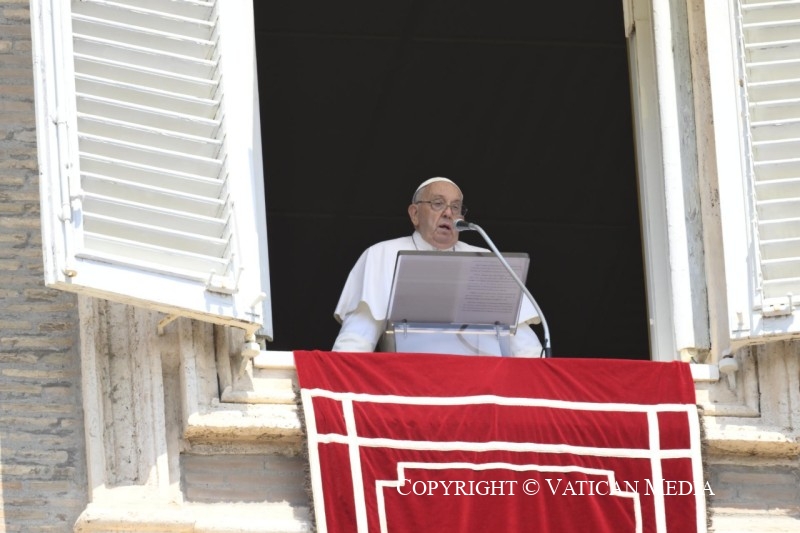Pope on the Trinity: God is like a family gathered at a table
Hearing about a Father and a Son “makes us taste, makes us savour God’s presence: the presence of God, always close, compassionate and tender,” said Francis at the Angelus. The pope also expressed his closeness to victims of the Odisha train accident, offering his prayer for the “wounded and their families.”
Vatican City (AsiaNews) – Pope Francis spoke to the faithful in St Peter's Square for the Angelus prayer on the Solemnity of the Most Holy Trinity. In his address, he said, “we can think of God this way, through the image of a family gathered around the table, where life is shared.”
Speaking about the interaction between Jesus and Nicodemus (Jn 3:16-18), in today’s liturgy, the pontiff noted that hearing about God as a relationship between a Father and a Son “disrupts our images of God”.
Indeed, “the very word ‘God’ suggests to us a singular, majestic and distant reality, whereas to talk about a Father and a Son brings us back home. [. . .] Besides, the table, which is also an altar, is a symbol with which certain icons depict the Trinity. It is an image that speaks to us of a God of communion. Father, Son and Holy Spirit: communion.”
For Francis, this image “makes us taste, makes us savour God’s presence: the presence of God, always close, compassionate and tender. The Holy Spirit does with us what Jesus does with Nicodemus”. Hence, “The invitation he extends to us, we might say, is to sit at the table with God to share in his love. This would be the image. This is what happens at every Mass”.
This is also what the sign of the cross reveals about the mystery of the Trinity, which the pope invited the faithful present in the square to perform for it is “the simplest gesture, which we learnt as children”.
Francis further explained that “by tracing the cross on our body, we remind ourselves how much God loved us, to the point of giving his life for us; and we repeat to ourselves that his love envelops us completely, from top to bottom, from left to right, like an embrace that never abandons us. And at the same time, we commit ourselves to bear witness to God-as-love, creating communion in his name.”
From this, the pontiff asks: “If God is love, do our communities bear witness to this? Do they know how to love? Do our communities know how to love? And our family … do we know how to love in the family?”
Likewise, “Do we keep the door open always, do we know how to welcome everyone [. . .]? Do we offer everyone the food of God’s forgiveness and Gospel joy? Does one breathe the air of home, or so we resemble more closely an office or a reserved place where only the elect can enter?”
Finally, “may Mary help us to live the Church as that home where one loves in a familiar way, to the glory of God the Father, the Son and the Holy Spirit.”
After the Marian prayer, Francis again expressed his closeness to the victims of the train accident in India.
“I assure my prayer,” he said, and “I am close to the wounded and their families. May the heavenly Father welcome the souls of the deceased into his kingdom.”
He ended by entrusting to Mary, the “caring Mother, the populations afflicted by the scourge of war, especially the dear and beleaguered Ukraine.”
05/06/2022 17:03
07/08/2022 15:02







.png)










